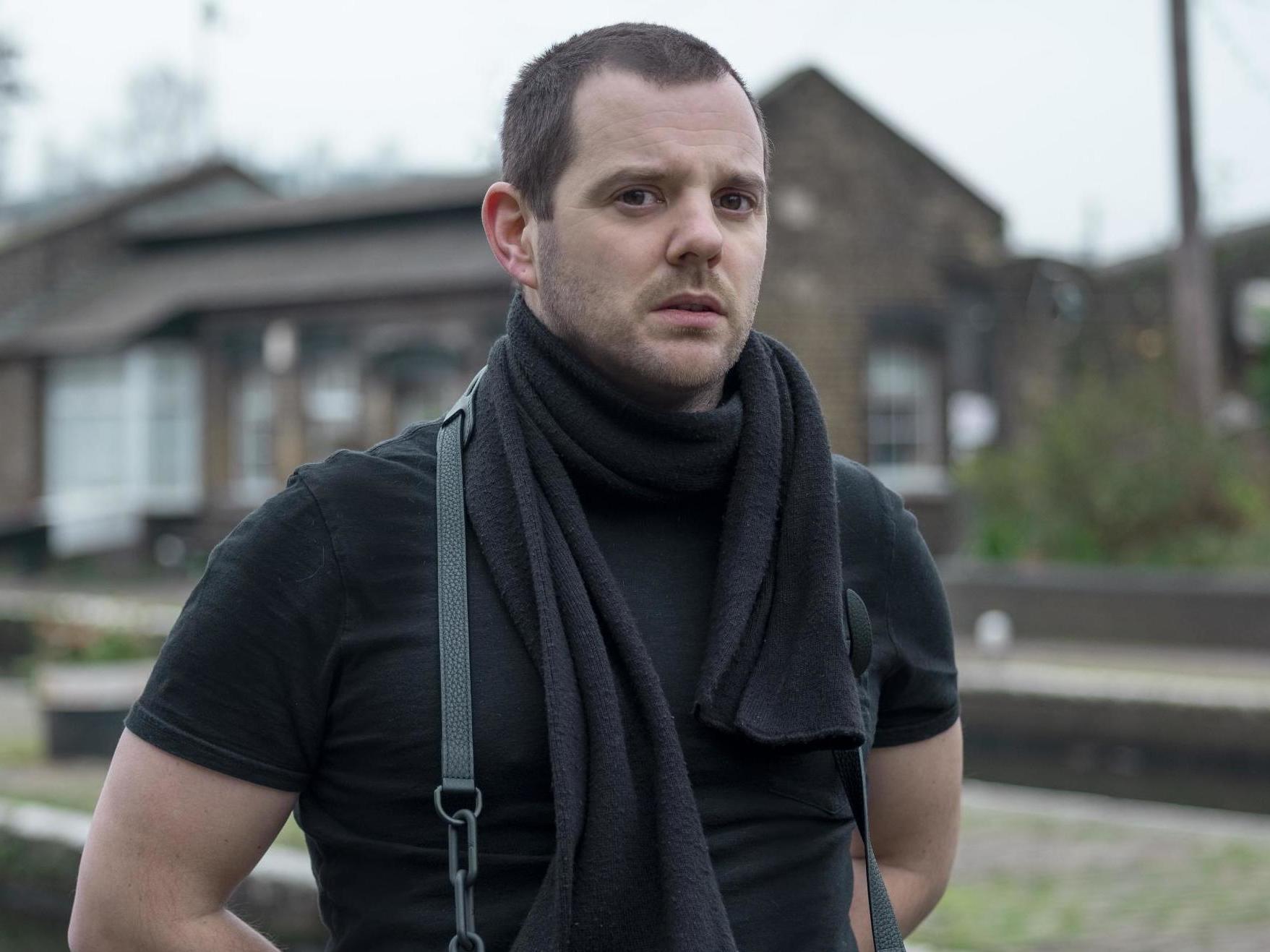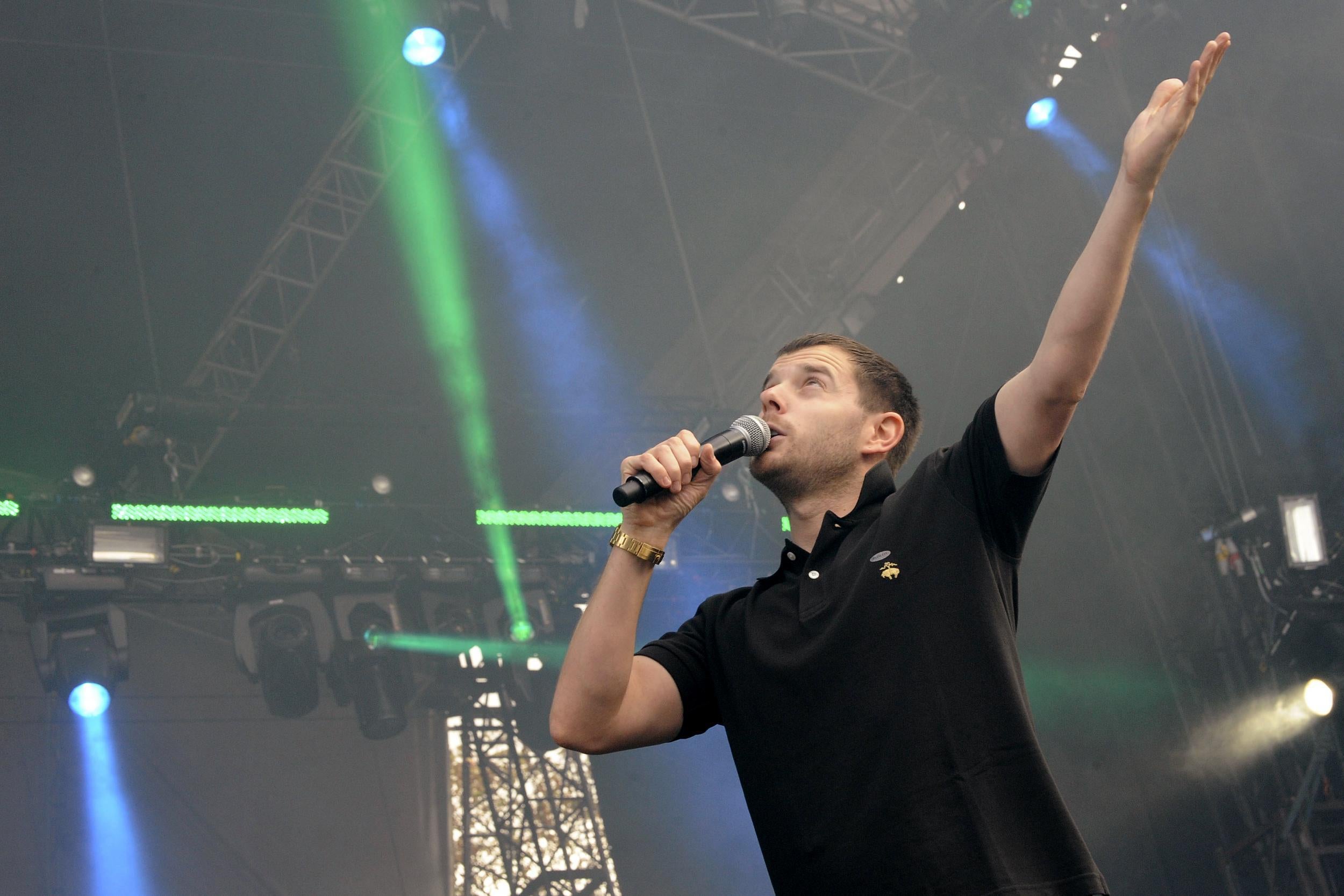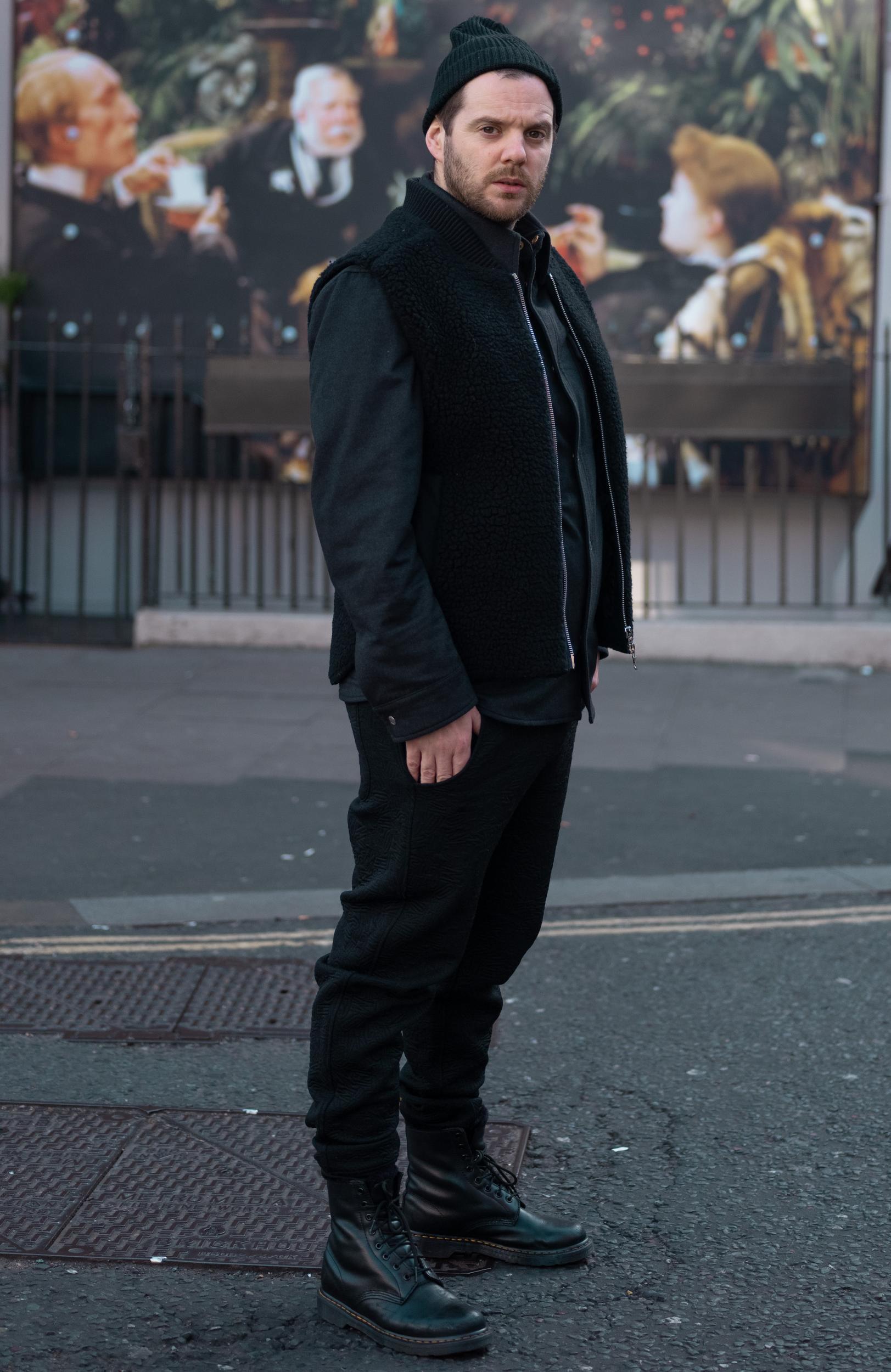Mike Skinner: ‘I shouldn’t have played at Bristol’s Colston Hall’
The Streets’ main man is back with his first album in nearly a decade and he’s just as opinionated as ever. He talks to Shaun Curran about Black Lives Matter and being the ‘Raymond Chandler’ of rap

I feel a bit guilty,” says Mike Skinner sincerely, in his Birmingham-via-London twang. “I shouldn’t have played at Bristol Colston Hall. Massive Attack haven’t been playing there for years. At the time, I just thought it was just a name.” The venue takes its name from former slave owner Edward Colston, whose statue had just been pulled down in the city two days before our interview; Skinner had played there in 2005 and 2006. “It was a fantastic moment pulling the statue down,” Skinner continues. “It was driven as much by white guilt as black power. Even Piers Morgan backs it. If he backs it, I’m pretty confident that we’re good to go.”
Skinner is back doing what he does best: philosophising on current events and, finally, releasing new music as The Streets. None of Us Are Getting Out of This Life Alive is the first Streets release in nine years, a dynamic mixtape full of duets with the likes of Tame Impala, Idles and Ms Banks. He’s spent the past decade jumping from project to project, and figuring out how to grow up. But the people’s geezer-poet seems to have found a sweet spot at last. “There’s a lightness to it,” he says of the mixtape (note: it’s not an album) and that the recording process was “just doing some s*** and listening back” rather than overthinking everything. “It’s not been like that since my first album,” he adds.
We’re speaking on a 10am Zoom call from his home in Highgate. Skinner is 40 now, but his speaking voice so closely resembles his rapping style that it’s like being transported back to the era of his 2002 debut, Original Pirate Material. The record was a defining moment in British music, merging UK garage, hip-hop and ska with previously unspoken detail. Its rowdy, lad culture narratives spanned Smirnoff Ice, Reebok Classics and dodgy kebabs, but also gave permission for a generation of young men to express their emotions – his it’ll-be-OK-mate ballad “Dry Your Eyes” reached number one in 2004. His social commentary rejected the Americanisms of much of the MC-led hits in the UK charts at the time (“round here we say birds, not bitches”, he sang on “Let’s Push Things Forward”) and remodelled British pop in his polo-shirted everyman image.
It was this exploration of everyday existence, he says, that made his storytelling so compelling. “I think in the soap opera of life, if you describe the actions, the brain feels the emotions,” he says, about to launch into a favourite metaphor. “That’s informed everything I’ve ever done. It’s the difference between rock and country music. And I’ve always been more country than I have rock.”
The Streets reformation was a bolt from the blue: even Skinner’s manager Tim Vigon was surprised. “When Mike told me he was bringing The Streets back, it was a total shock,” he said. You can see why: by 2011, Skinner had looked fed up with The Streets. Sales were in decline since his isn’t-it-terrible-to-be-famous third album, 2006’s The Hardest Way to Make an Easy Living, punctured a hole in his relatability. His last two uneven albums, 2008’s Everything is Borrowed and 2011’s Computers and Blues, had their moments, but The Streets had lost their vim. Skinner seemed happy to be moving on (“this is not a Frank Sinatra retirement”, he wrote in his 2012 memoir, The Story of the Streets).

He spent his hiatus working on a number of bitty projects, with varied success. He made low-key records as The DOT, The Darker the Shadow, the Brighter the Light; a few VICE documentaries; a podcast with his party comrade Murkage Dave; and he DJed around the country with his balloon-and-bass night Tonga. “I thought DJing would be a dignified way to grow up,” he says. “But it’s not. Being in nightclubs three times a week isn’t grown up.”
It was the making of a film, he says, that was the impetus for The Streets’ revival. “Imagine the guy from A Grand Don’t Come For Free grew up to be a DJ,” he says of the film’s plot. “It’s just a bit of caper, really.” Skinner plans to star as well as do its music, but he realised as he was writing the soundtrack that he was essentially making new Streets music again. “The reason I stopped The Streets was to make a film and the reason I started again was to make a film,” he says. “I didn’t need the money and I wasn’t bored.” If his incentive had been financial, you could hardly have blamed him. Demand for a Streets reunion was high. His 2018 tour sold out in seconds.
Still, I wonder, in a landscape where pop culture of the past is constantly being re-evaluated, whether he worried that some of his old songs, like “Fit But You Know It”, could have been…
“Cancelled!” he jumps in pre-emptively. “It could be a lot worse. I could have made much more problematic music. I don’t worry about it.” He takes a second before expanding. “I think social media is going to have to find a way of addressing the context thing. I think context exists in the real world, what someone looks like is quite important to what they’re saying. And on Twitter you don’t get that to any sort of satisfactory level. And it also works when you’re looking back at stuff. So probably at best ‘Fit But You Know It’ can just be seen as something cheeky that’s maybe of its time. In context of FHM culture and Nuts magazine, it’s probably a bit more woke than that, but definitely less woke than now.”
Enjoy unlimited access to 100 million ad-free songs and podcasts with Amazon Music
Sign up now for a 30-day free trial. Terms apply.
ADVERTISEMENT. If you sign up to this service we will earn commission. This revenue helps to fund journalism across The Independent.
Enjoy unlimited access to 100 million ad-free songs and podcasts with Amazon Music
Sign up now for a 30-day free trial. Terms apply.
ADVERTISEMENT. If you sign up to this service we will earn commission. This revenue helps to fund journalism across The Independent.
Interviewing Skinner is a bit like walking through a hall of mirrors: you’re not sure where his next reflection is coming from, but the disorientation is part of the fun. Even the most basic of enquiries can elicit random theories (“will meat be illegal in 50 years? I think it probably will be”) or some lateral curveballs about The Diary of Virginia Woolf, the work ethic of medieval England, or how Darth Vader was actually onto something. “He was really compelling because he had an interesting point – he was like, if bad guys are going to win, you might as well join me, right? Even if you end up being bad, at least you won’t be dead.”
Skinner seems to like offering contrary views – even when it comes to more serious matters. Growing up in Nineties suburban Birmingham, Skinner gravitated towards black music – during the Britpop wars he was listening to Nas and Wu Tang Clan – and later influenced British rappers such as Kano and Giggs. He’s spoken about black culture in the past, so, naturally, I’m keen to get his thoughts on Black Lives Matter. “It’s been incredibly moving,” he says. “It’s easy for me to say, but I don’t think racist people are the problem, even though they are being quite vocal on Twitter. I think racist systems are by orders of magnitude more damaging. I think what’s going on at the moment is people are starting to understand the difference between racist people and racist systems.”
As in real life, Skinner’s new music sees him imparting droll advice like he did in the tunes that made his name. None of Us Are Getting Out of This Life Alive is full of the one-liners that originally marked him out as a lyrical heavyweight (“she talks about her ex so much even I miss him”) and cautionary life hacks (“some people drink to be interesting/ some people drink to be interested”). “I try to have something to say because I don’t want to waste anyone’s time,” he says. “Ultimately that does end up being advice. There’s only so many times you can say “I love you’”.
But he is clearly enjoying himself, too. The mixtape’s cover features an expensive diamond-encrusted lighter chain with The Streets logo running through the middle. He’s wearing the chain, and when I mention it, he proudly pulls the lighter from under his T-shirt and holds it to the camera. After a little reluctance, he tells me it cost £25,000. “But in terms of what we spent on the artwork for my albums in the past, it was more than £25k, I’ll tell you that. So the label is happy.”

The music, a lively mix of grime, trap, drum’n’bass and house, plays into that sense of abandon. “I’m not trying to reinvent music,” he says, somewhat disappointingly for a man whose work has been so boundary pushing. “It’s a rap duets album. I’m just trying to keep it super simple.” Nonetheless, Skinner seems re-energised, as his new songs boast a varied range of guests. As well as big hitters from indie rock, Tame Impala and Idles, there’s a raft of London’s hottest rappers, including Jimothy Lacoste, Jesse James Solomon and Oscar #Worldpeace. What links them? “The main thing is an element of reality in what they do,” he says. “They all have quite specific detailed lyrics. I love glamour and violence and all that good stuff in entertainment, but it doesn’t work with my music.”
None of Us Are Getting Out of This Life Alive is full of Skinner’s recurring themes: the politics of mobile phone usage (“most human dramas now unfold on WhatsApp and Twitter”, he says, “that’s where the action is”) and partying. Or specifically how, now he’s married with young children, the big nights become less frequent but just as hard hitting. “I feel like a Raymond Chandler character sometimes,” he admits, going off on another one of his tangents, “a slightly jaded private detective hopefully better than the world that I’m in.”
Jaded or not, it’s like he’s never been away. It turns out Skinner missed the tour bus, the stage, the mayhem. The reunion shows were raucous, and, for a moment, it was the early Noughties again. It’s just that Skinner still wants to push things forward. “I understand the nostalgia,” he says. “Nobody gets that more than me. I know what it’s like to apologetically play your new song which just isn’t as good as the other ones. But at the same time I am trying to make good songs. I’m not phoning it in. That’s what I’m here to do. And if I don’t do that,” he says, taking a few seconds to think about the alternative, “I’ll just carry on singing ‘Dry Your Eyes’.”
None of Us Are Getting Out of This Life Alive is out via Island Records on 10 July